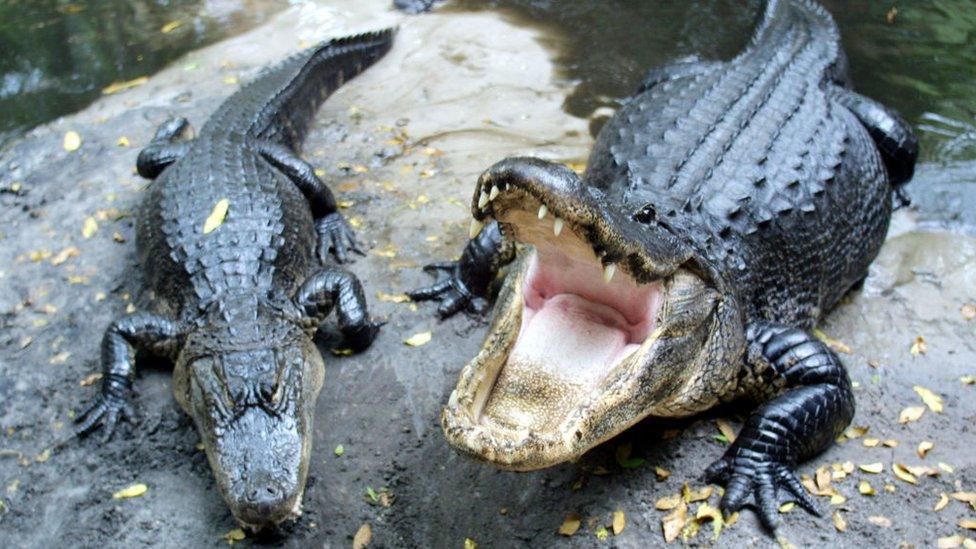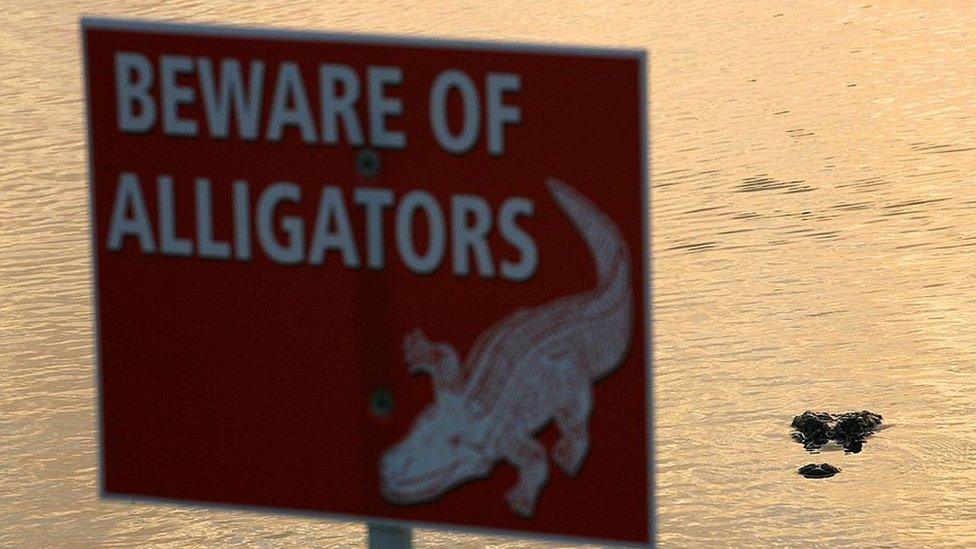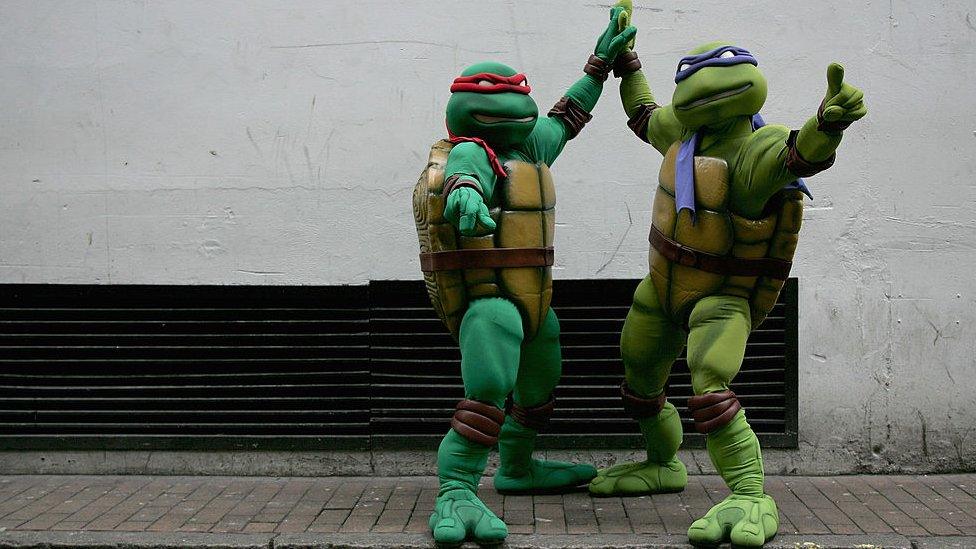Tennessee town dispels 'meth-gator' myth
- Published

Does flushing drugs down the toilet create freakish super-aggressive "methed-up" alligators? Probably not, biologists say, but that hasn't stopped one small town Tennessee police force from having a laugh after their Facebook "warning" went viral, writes Jonathan Berr.
The midsummer bulletin by Loretto Police started as a routine description of the arrest of suspect Andy Perry who was caught unsuccessfully attempting to flush liquid methamphetamine down the loo.
But it took a turn for the weird when cops issued this guidance: "Folks…please don't flush your drugs m'kay [okay]?"
It adds that the town's "sewer guys... are not really prepared for meth" and that the drug "could create meth-gators" downstream in Alabama.
"Ducks, Geese, and other fowl frequent our treatment ponds and we shudder to think what one all hyped up on meth would do," they cautioned.
That led to a slew of headlines in the US media about "meth-gators" and the possibility of "hyper-aggressive" alligators.
Loretto Mayor Jesse Turner says the post was clearly meant as a joke, but the humour may have been missed outside the region.

"People pay more attention [to police news] when they know there is a little humour.
"I can't go anywhere without hearing something about meth gators," he says, adding that the town of 1,700 people about 90 miles (145km) south of Nashville are definitely in on the joke.
One gag included in the post - which may have been overlooked by outsiders - pokes fun at Alabama, which they say "had enough methed-up animals the past few weeks without our help".
That was a reference to a "meth-fuelled attack squirrel" that a man was accused of keeping in his home. In that bizarre case, defendant Mickey Paulk denied that his pet was a drug addict on drugs.
Allow X content?
This article contains content provided by X. We ask for your permission before anything is loaded, as they may be using cookies and other technologies. You may want to read X’s cookie policy, external and privacy policy, external before accepting. To view this content choose ‘accept and continue’.

Police said "there was no safe way to test the squirrel for meth," so it was released into the woods.
The squirrel's owner denied feeding it drugs to make it more aggressive. "The public isn't in danger in any kind of way from the methed-out squirrel in the neighbourhood," he said.
Among those commenting on the "meth-gator" Facebook post was the Loretto Library, which helpfully added: "Meth gators are not allowed in the library, unless they are registered service meth gators.
"Documentation may be required."
When a citizen inquired about how to register for a meth gator permit, the police force chimed in: "Ummm...we do not allow meth gators in the city limits."

There was also an important message.
The Loretto police were quick to add that all drugs - including prescription pills - should be disposed of properly, and can be dropped off in bins located at city hall.
That's because toxins finding their way into marine life is a real issue - in the UK, cocaine was found in freshwater shrimps.
But many parts of the meth-gator story didn't add up, according to Dr Robert A Thomas, director of Loyola University's Center for Environmental Communication in New Orleans.
For one thing, the amount of flushed methamphetamine would need to be staggering to affect the behaviour of an alligator given their size. Males can weigh as much as 1,000lb (540kg).
There's also the issue of the gator's watery habitat which would dilute the potential impact of any drug.

No warnings have been issued for teenage mutant ninja turtles
"They can live through - it seems - almost anything," says Dr Thomas.
"They seem to be unaffected lots of pollutants and the other things that they live around."
Populations of the reptiles have exploded since a "biologically-based management system" developed during the 1970s, he says.
Florida home finds reptile intruder
The hardy creatures have been around for around 150 million years - existing since the age of dinosaurs - and are hardly likely to face extinction due to a drug epidemic.
"We have more alligators than we have had probably anytime in history," he said.
"I can't imagine them being more abundant even before humans were here."

More on alligators in US
Girl describes fighting off Florida alligator
- Published3 June 2019
